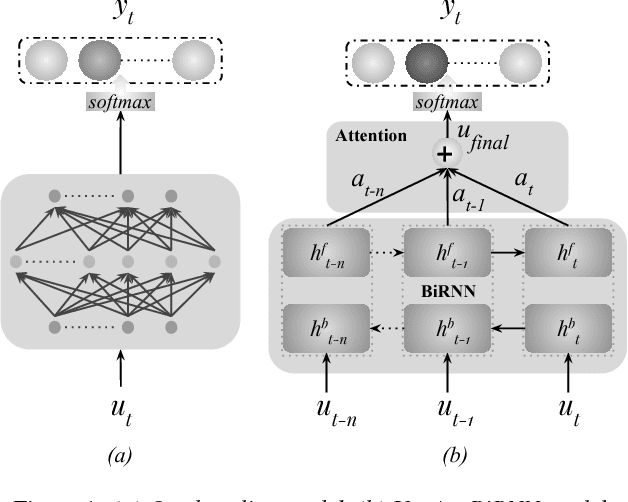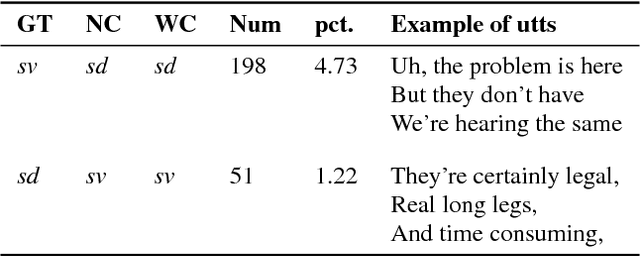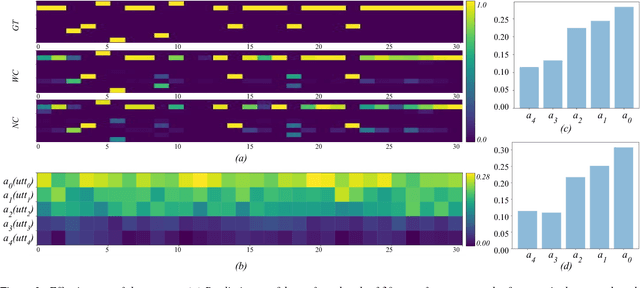Conversational Analysis using Utterance-level Attention-based Bidirectional Recurrent Neural Networks
Paper and Code
Jun 20, 2018



Recent approaches for dialogue act recognition have shown that context from preceding utterances is important to classify the subsequent one. It was shown that the performance improves rapidly when the context is taken into account. We propose an utterance-level attention-based bidirectional recurrent neural network (Utt-Att-BiRNN) model to analyze the importance of preceding utterances to classify the current one. In our setup, the BiRNN is given the input set of current and preceding utterances. Our model outperforms previous models that use only preceding utterances as context on the used corpus. Another contribution of the article is to discover the amount of information in each utterance to classify the subsequent one and to show that context-based learning not only improves the performance but also achieves higher confidence in the classification. We use character- and word-level features to represent the utterances. The results are presented for character and word feature representations and as an ensemble model of both representations. We found that when classifying short utterances, the closest preceding utterances contributes to a higher degree.
 Add to Chrome
Add to Chrome Add to Firefox
Add to Firefox Add to Edge
Add to Edge